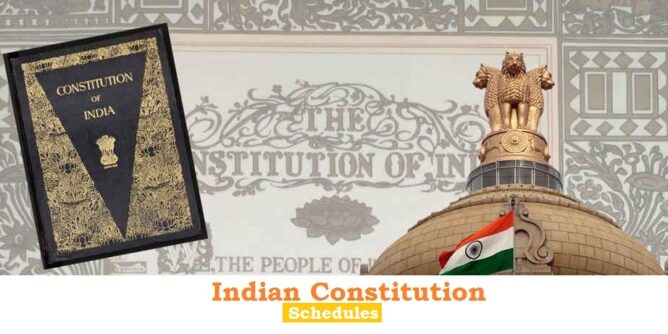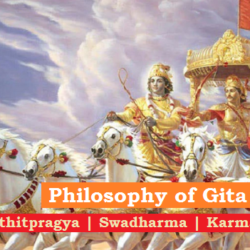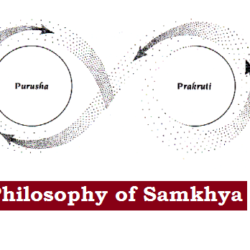
Schedules are lists in the Constitution of India that categorize activities and policy of the Government. Indian Constitution had originally eight schedules, which with further additions became twelve as of today.
| First Schedule: 1. Names of the States and their territorial jurisdiction. 2. Names of the Union Territories and their extent. |
| Second Schedule: Provisions relating to the emoluments, allowances, privileges and so on of: 1. The President of India 2. The Governors of States 3. The Speaker and the Deputy Speaker of the Lok Sabha 4. The Chairman and the Deputy Chairman of the Rajya Sabha 5. The Speaker and the Deputy Speaker of the Legislative Assembly in the states 6. The Chairman and the Deputy Chairman of the Legislative Council in the states 7. The Judges of the Supreme Court 8. The Judges of the High Courts 9. The Comptroller and Auditor-General of India |
| Third Schedule: Forms of Oaths or Affirmations for: 1. The Union ministers 2. The candidates for election to the Parliament 3. The members of Parliament 4. The judges of the Supreme Court 5. The Comptroller and Auditor-General of India 6. The state ministers 7. The candidates for election to the state legislature 8. The members of the state legislature 9. The judges of the High Courts |
| Fourth Schedule: Allocation of seats in the Rajya Sabha to the states and the union territories. |
| Fifth Schedule: Provisions relating to the administration and control of scheduled areas and scheduled tribes. (Article 244) |
| Sixth Schedule: Provisions relating to the administration of tribal areas in the states of Assam, Meghalaya, Tripura and Mizoram. (Article 244, 275) |
| Seventh Schedule: Division of powers between the Union and the Statesin terms of List I (Union List), List II (State List) and List III (Concurrent List). (Article 246) |
| Eighth Schedule: Languages recognized by the Constitution. (Article 344, 351) |
| Ninth Schedule: Acts and Regulations (originally 13 but presently 282)19of the state legislatures dealing with land reforms and abolition of the zamindari system and of the Parliament dealing with other matters. |
| Tenth Schedule: Anti-defection Law |
| Eleventh Schedule: Specifies the powers, authority and responsibilities of Panchayats. It has 29 matters. |
| Twelfth Schedule: Specifies the powers, authority and responsibilities ofMunicipalities. It has 18 matters. |
Schedule X (Anti-Defection Law)
Objective: To disqualify a legislator from the legislatures on certain grounds
Added: In 1985 by introducing Tenth Schedule in the Constitution
Rationale: A representative is elected on the basis of the party’s programme and therefore, if after winning election he defects, should be disqualified.
Grounds for Defection:
- On voluntary giving up the membership of a political party on which he has won
- If he votes or abstains from voting against the whip (directions issued by the political party)
- An independent member if he joins a political party after election
- A nominated member if he joins a political party 6 months after he starts sitting in the legislature
Exceptions from Defection:
- No more protection of split of 1/3 members exempted (91st Amendment 2003 has removed it)
- Merger of the party with another political party when at least 2/3 members agree
- Presiding officer of the legislature, he voluntarily gives up the membership of his party and rejoins after he seize to hold that office
Criticism of the Law:
- No distinction between dissent and defection
- Curbs the right to dissent and freedom of conscience and constitutional obligation
- It undermines the democratic principles by compromising his constituency related imperatives over Party’s view
- While it prohibits individual defection, permits group defection
- Discrimination between an independent and nominated member is illogical
- The final authority- presiding officer lacks legal knowledge and may not act impartially due to political exigencies
- It discourages critical thinking and innovation in ideas to improve governance on part of the legislators
Suggestions:
- Whips only for those legislations which threaten the stability of the Govt like Confidence Motion, No-confidence Motion, Adjournment Motion, Money Bill or financial matters
- The power to decide on disqualification should be given to the President or the Governor, who shall act on the advice of the Election Commission. (Recommended by Goswami Committee)
- It should be extended to pre-poll alliances as they win elections on party’s programs and promises. (Recommended by Law Commission)
Schedule V
Article 244: Administration of Scheduled Areas and Tribal Areas
Article 339: Control of the Union over the administration of Scheduled Areas and the welfare of Scheduled Tribes
Provisions:
- Declaration of Scheduled Areas by the President
- Governor to submit report to the President regarding the administration of such areas
- Centre may give directions to the States regarding the same
- Tribal Advisory Council to advise on the welfare of tribals in the state
- Governor empowered to declare any act of Parliament and the State does not apply to such areas
- Governor may repeal any act with the assent of the President
- Constitution requires the President to appoint a Commission to report on the administration of such areas (Only two 1960 and 2002)
| Tribal Advisory Council (TAC) 1. As per V Schedule each State having Scheduled Area has to constitute a TAC 2. In non-Scheduled Areas too, if President directs TAC is to be constituted 3. It consists of 20 members, 3/4th from ST MLAs in the Assembly 4. To advise on welfare and advancement of the Scheduled Tribes in the State (referred by the Governor) 5. No regulation shall be made by the Governor without consulting TAC |
| Xaxa Committee UPA-II setup Committee under Virginius Xaxa. He was a member of NAC (National advisory council) to study the socio-economic, health and educational status of tribals and to suggest policy initiatives and interventions for tribal-upliftment. |

Schedule VI
- Article 244A: Formation of an autonomous state comprising certain tribal areas in Assam and creation of local legislature or Council of Ministers or both therefore
- Governor is empowered to declared any Autonomous Region
- Administration of NE States (Assam, Tripura, Meghalaya, Mizoram) (MATM)
- Sizeable autonomy is provided as they have not assimilated much into the main stream of society
- Tribal Areas as Autonomous Districts and Regions
- All the provisions of Fifth Schedule applicable
- However, there is no linkage between the Sixth Schedule and the 73rd Amendment which could have covered Autonomous by the State Finance Commission and the State Election Commission.
| District Autonomous Council: |
- Constitution:
- As per VI Schedule applicable in four north-eastern States (MATM: Meghalaya, Assam, Tripura and Mizoram)
- Being distinct in culture and customs
- The tribals of other areas have more or less adopted the culture of majority
- To address the political aspirations of Nagas
- Appointment:
- Membership is limited to 30, out of whom 4 to be nominated by the Governor, 26 to be elected on the basis of adult franchise
- Term:
- For five years and may be dissolved by the Governor on the recommendation of the Commission
- Legislative Power:
- They can make laws on certain specified matters like land, forests, canal, shifting cultivation, marriage, social customs, money lending etc (Governors assent is required)
- Judicial Power:
- Can constitute village courts for trial of suits and cases between tribes and also to hear as an appellate body
- Financial Power:
- Empowered to assess and collect land revenue and to collect some specified taxes. Acts of Parliament or the State Legislature do not apply to these areas directly
Criticism of Sixth Schedule:
- They have been given more powers than local govt under 73rd and 74th amendments
- There is conflict of power between autonomous regions and the State Legislature
- Under Sixth Schedule State enjoys superiority in case of a conflict
- Laws made need assent of the Governor, who works with the aid and advice of the Council of Ministers
- Local bodies get funded through State Finance Commission but autonomous do not
- Not covered by State Election Commission too
Governor: Special Powers in Scheduled Areas
- Applicability of a law:
- He is empowered to direct that an act of Parliament or the State Legislature does not apply to a scheduled area or is applicable with certain modifications.
- Making law:
- He can make regulation to repeal or amend any act of Parliament or the State Legislature (after consulting with Tribal Advisory Council and requires assent of the President)
- He can make regulations for peace or good governance in the region (after consulting with Tribal Advisory Council)
- Submits reports to the President regarding administration of such areas
Special Powers in Tribal Areas:
- He is empowered to declared any Autonomous Region
- Acts of Parliament or the State Legislature do not apply to these areas directly
- He is empowered to organise or re-organise the autonomous districts
- Out of 30 members in the autonomous district council, 4 are nominated by him
- Gives assent to the laws made by councils
- Jurisdiction of High Court over the tribal cases may be specified by him
- Can appoint a commission to report to administration of the region

 Home
Home Syllabus
Syllabus Contact Us
Contact Us





1 thought on “Schedules of the Constitution”